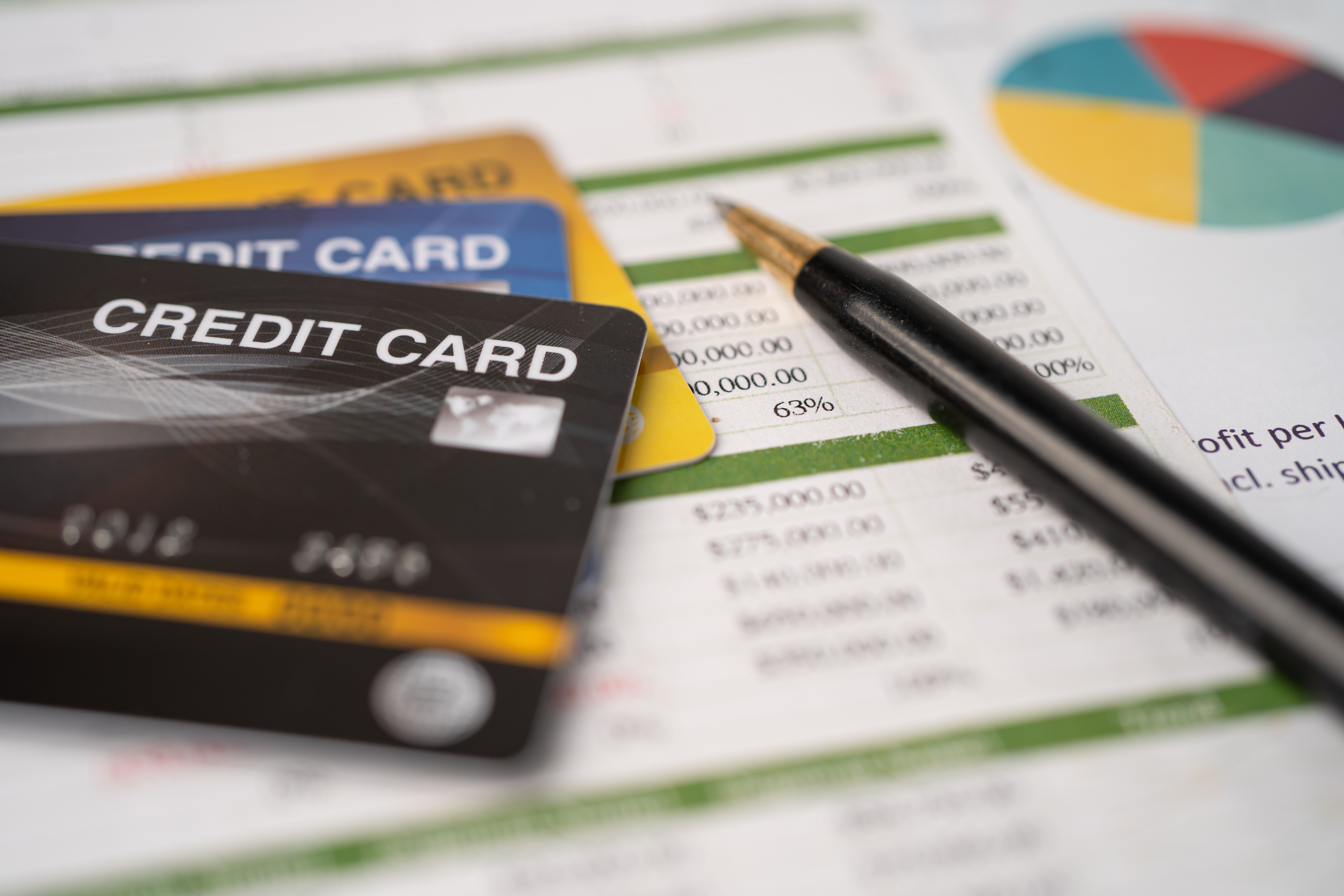Credit cards don’t have to wreck your budget. In fact, when used intentionally, they can make budgeting easier, safer, and even more rewarding.
Key Takeaways
|
By learning how to budget with credit cards, you can leverage built-in tools like expense tracking, automatic categorization, and spending alerts to help you monitor your fraud exposure, all while potentially building your credit score and perhaps earning some cash back or other rewards.
Despite their sometimes bad reputation, if you can learn to use credit cards responsibly, you can also use them to help you manage your finances, follow a budget, and help keep you financially protected in the process.
In fact, many of the cards we evaluate, particularly those in our reviews of the best catch-all credit cards or the best credit cards for gas and groceries, place simplicity at the top of the priority list, meaning you can focus on using them to reach you primary goal, which is successfully maintaining a budget using credit cards as a tool to do so.
Benefits of Using Credit Cards in a Budget
Learning to manage credit cards is the first step. My first caution is to only approach this method if you can trust yourself to avoid overspending. Done? Okay, let’s talk about using them to help your financial foundation or budget. Credit cards, with their associated statements and consumer protections, offer benefits that debit cards and cash simply can’t match:
- Real-time tracking. Every purchase appears in your account dashboard immediately, helping you track your spending and stick to your plan.
- Automatic categorization. Most issuers and budgeting apps sort transactions into categories like groceries, utilities, or travel, taking some of the stress out of reviewing and transferring numbers to your physical budget.
- Purchase protections. Credit cards offer stronger fraud protection than a debit card, often covering damage or theft on eligible purchases. You can also set spending limits and fraud detection parameters on many credit cards.
- Rewards and cash back. Responsible spending can actually pay off through rewards, points, or statement credit redemptions.
Related Article: Can Credit Cards or Personal Loans Help Pay Off Medical Debt?
Budgeting Approaches That Work with Credit Cards
There’s no single best method, but these three budgeting strategies fit most people’s needs. The one you choose can depend on your comfort level or which budgeting app you decide to use.
1. Zero-Based Budgeting
Plan your expenses at the start of each month and assign every dollar a job. Pay your credit card balance in full from your checking account before the due date. Doing so keeps spending aligned with your plan, builds your credit score, maintains a low debt ratio, and avoids costly interest charges.
2. Envelope Method
While physically stuffing real money into real envelopes is largely a thing of the past, digital envelope methods exist and are made easy by using your credit card statement to categorize your spending. Instead of stuffing envelopes with cash, track categories using your card’s online or app dashboard or a budgeting app. Deduct each purchase from its digital “envelope” to stay within your spending limits.
3. Pay-As-You-Go Budgeting
Use your card like a debit card. Make purchases, then pay your balance weekly or even daily. This prevents large end-of-month surprises and helps avoid accumulating credit card debt. Additionally, you’ll be sure to avoid interest costs, and you can write or record a smaller number of transactions than if you did it once a month.
Rules to Keep You on Track
To make credit cards work for your budget, and not against it, follow these golden rules:
- Only charge what you already have cash to pay for. Act as if the money you have in the bank is the only money available to you.
- Always pay your full balance before the due date to avoid interest rates.
- Set up automatic payments or alerts if you think you could forget.
- Use one card that works for everything, preferably a catch-all rewards card, to simplify tracking and avoid potential confusion.
Recommended Cards for Budgeting Success
For budgeting, the best credit cards are simple, predictable, and consistent. Flat-rate rewards cards make it easy to track your spending without having to manage multiple accounts. You can also earn a little in the way of cash back or rewards—you may even be able to add those perks back into your budget.
Top Picks:
- Wells Fargo Active Cash® Card: Earns 2% cash back on all purchases with a $0 annual fee and cell phone insurance protection as an added bonus.
- Chase Freedom Unlimited® Credit Card: Offers a long intro APR period, plus up to 5% back on travel purchased through Chase Travel℠.
- Building your credit? Check out these selections in our overview of the best credit cards that don’t require a security deposit.
- If you need to pay down credit card debt, the Citi Simplicity® Card offers one of the longest balance transfer periods. Learn more in our overview of the balance transfer cards for average credit.
- If your credit is already established, check out our overview of the best credit cards for good credit, and learn about rewards you could be earning.
What to Avoid When Budgeting with Credit Cards
Even the best strategy can fall apart without discipline. Keep an eye out for the following pitfalls. If you find yourself falling behind, make some budgeting changes or go back to budgeting without a credit card before costs skyrocket, as they quickly can.
- Carrying a balance. No rewards or budgeting tool is worth it if you’re paying high credit card interest every month.
- Treating your credit limit as your budget. It’s not free money. Spend only based on what’s in your budget, regardless of your credit limit.
- Relying on bonuses. Don’t justify overspending just to earn a sign-up or any other bonus.
Related Article: How Can I Lower My Credit-Card Interest Rate?

